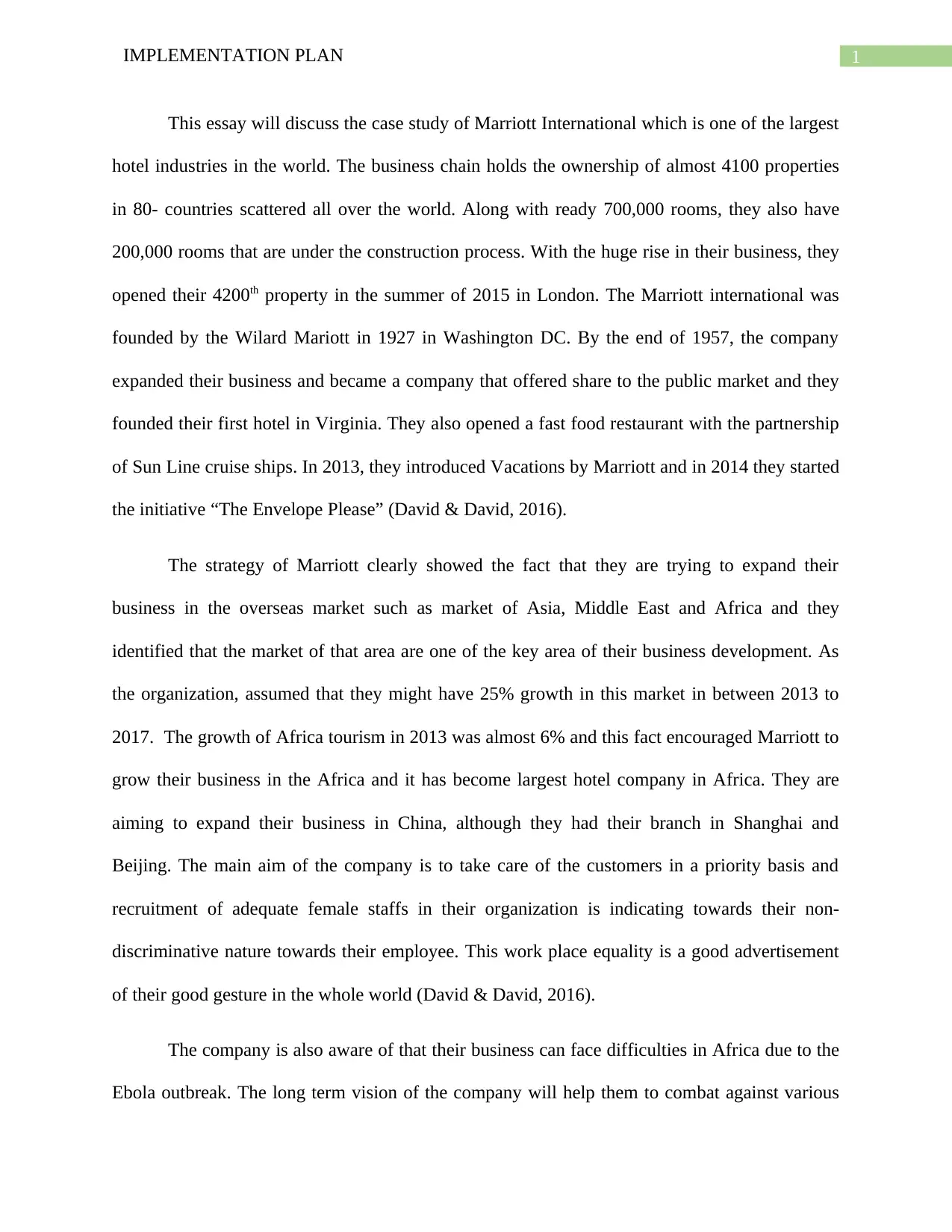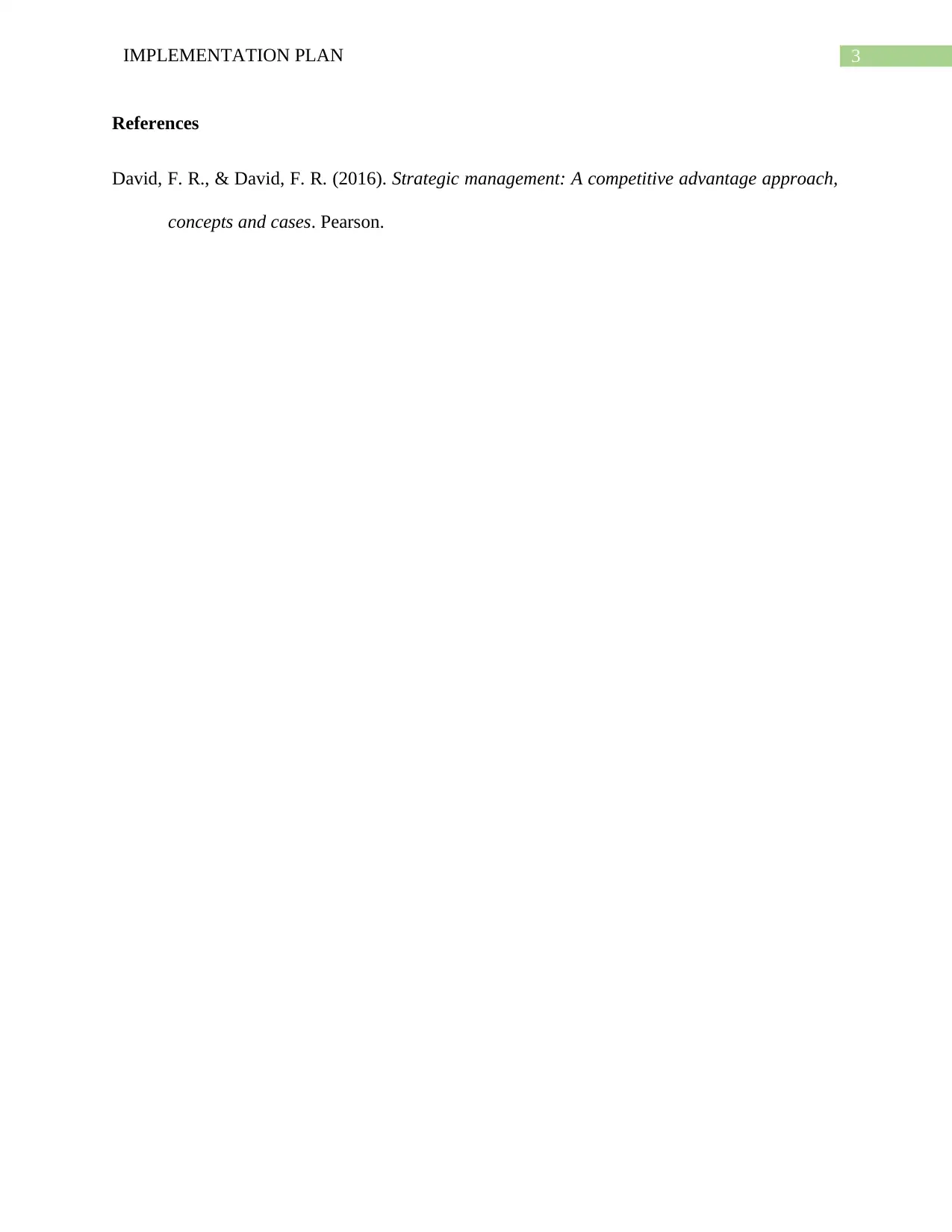Marriott International's Strategic Implementation Plan Case Study
VerifiedAdded on 2023/04/23
|4
|632
|358
Case Study
AI Summary
This case study examines Marriott International's implementation plan, detailing its global expansion strategies and challenges. Founded in 1927, Marriott has grown to own approximately 4100 properties across 80 countries, with significant expansion plans in Asia, the Middle East, and Africa. The company aims to prioritize customer care and workplace equality, despite potential challenges like the Ebola outbreak. Marriott's long-term goals include increasing its presence in China and India, while short-term goals involve acquisitions like the Canadian-based Delta Hotels. The case study also points out areas for improvement, such as the company's cancellation policy, which may negatively impact customer perception. Desklib provides students access to similar case studies and assignments.
1 out of 4










![[object Object]](/_next/static/media/star-bottom.7253800d.svg)